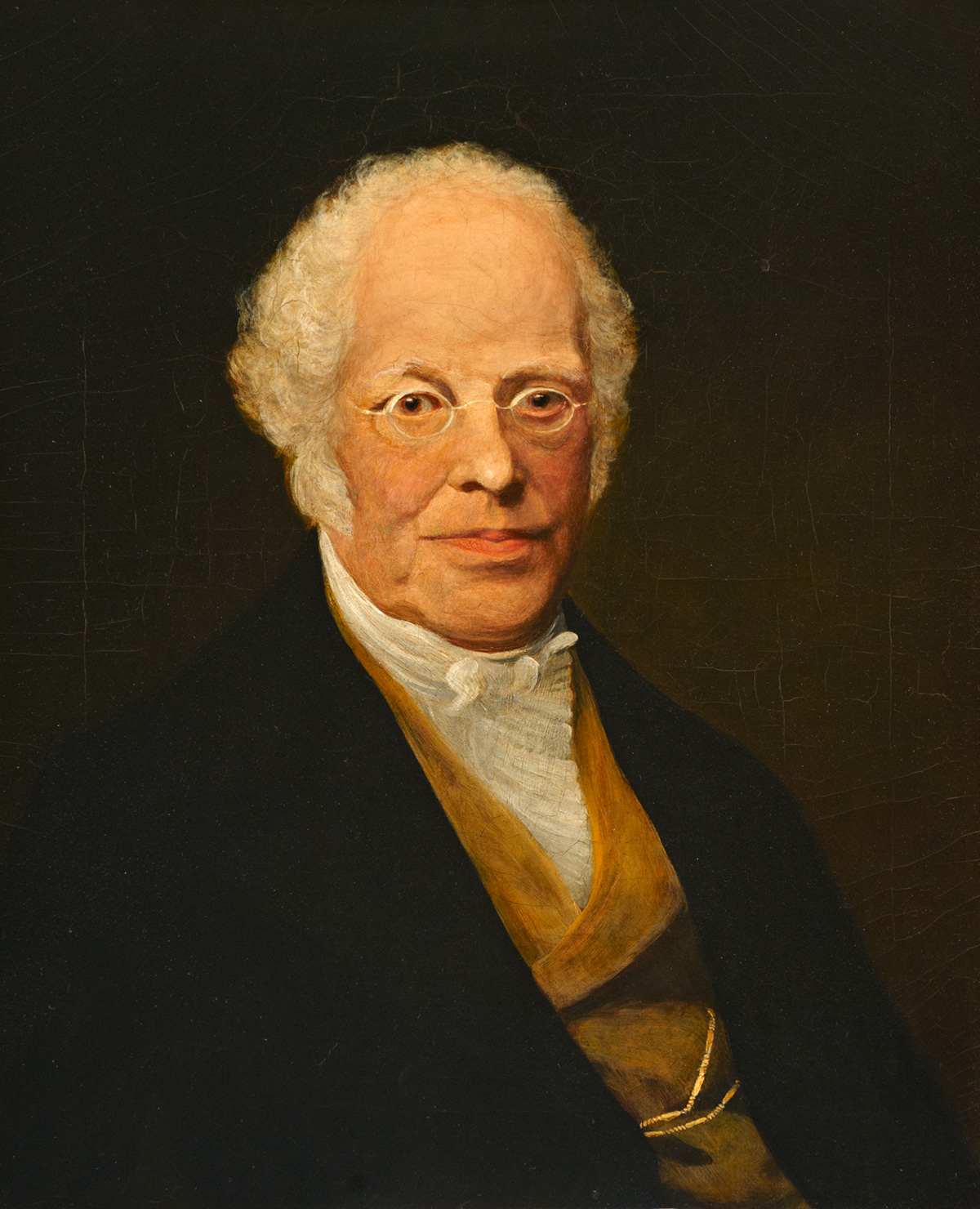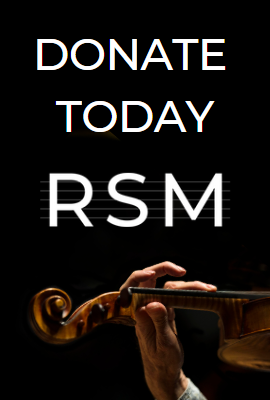Archive item of the month – October 2020
George Thomas Smart
(London 10 May, 1776 – London 23 February 1876): organist, conductor and composer.
Oil painting of George Smart by an unknown artist; donated to the RSM by Charles Hodgson (1798-1873, RSM Member A314) in 1873 or earlier.
Sir George Smart’s long career in music started at the age of seven when he was a chorister of the Chapel Royal and, at the age of fifteen, was appointed organist of St James’s Chapel, Hampstead Road. As a singer and organist, his early background of total immersion in daily musical experience led him to be directed by some of the most sought-after teachers of the period, including Edmund Ayrton, Thomas Dupuis, Samuel Arnold and Johann Baptist Cramer. Smart was also a violinist at Johann Salomon’s concerts at the Hanover Square Rooms and an early anecdote recounts how Smart offered to play timpani on account of the drummer not appearing for a rehearsal, in which the composer Joseph Haydn instructed Smart how to play the instrument.
However, Smart was soon interested in directing and became one of the most prominent “conductors” in England in the first half of the nineteenth century. He was one of the original members of the Philharmonic Society, founded in 1813, and conducted almost fifty of their concerts over a thirty-year period, including the first performance in England of Beethoven’s Ninth Symphony. He kept his concert programmes and annotated them with starting and finishing times for many of the individual pieces within a concert. These programmes (now in the British Library collections) provide fascinating evidence as to the tempo with which works were heard in that period; Smart had visited Beethoven in Vienna for the purposes of identifying the correct tempi of his compositions.
He was involved in much of the musical performance of the first half of the nineteenth century, including the Lenten Oratorio Concerts at the theatres in Covent Garden and Drury Lane: the performances included the first English performances of Beethoven’s Christus am Oelberge and the ‘Battle Symphony’. He was organist of the Chapel Royal from 1822.
He directed music from a keyboard and did not use a baton. He was well-connected in society circles, extremely well-grounded in musical history and performing traditions, and his diaries and notebooks show enormous exactitude and documentation. As a director (both musical and administrative) of musical festivals across the country, he was in great demand: his involvement between 1823-1842 can be seen in the many festivals held at Bath, Bury St Edmunds, Cambridge, Derby, Dublin, Edinburgh, Hull, Liverpool, Manchester, Newcastle upon Tyne and Norwich. These festivals raised may thousands of pounds for the benefit of the local hospitals, infirmaries and restorations. He was the prime organiser of the Royal Musical Festival held at Westminster Abbey in 1834; although the Festival was in aid of The Royal Society of Musicians, amongst others, Smart was not a Member of the RSM. His patience had been tested by the RSM during the organisation of the events. Smart had invited the RSM’s Treasurer, John Parry (1776-1851), to be the Honorary Secretary for the festival and the Society had wanted all the performers to be from their Membership.
Further literature:
- Carnelley, John, George Smart and Nineteenth-Century London Concert Life (Woodbridge: The Boydell Press, 2015).
- Cox, Hugh Bertram and Cox, C.L.E., Leaves from the Journals of Sir George Smart (London: Longmans, Green, and Co., 1907).
- Foster, Myles Birkett, History of the Philharmonic Society of London, 1813-1912 (London: John Lane, 1912).
- Parry, John, An account of the Royal Musical Festival held in Westminster Abbey, drawn up from official documents, by John Parry, honorary assistant secretary to the directors (London: 1834).





